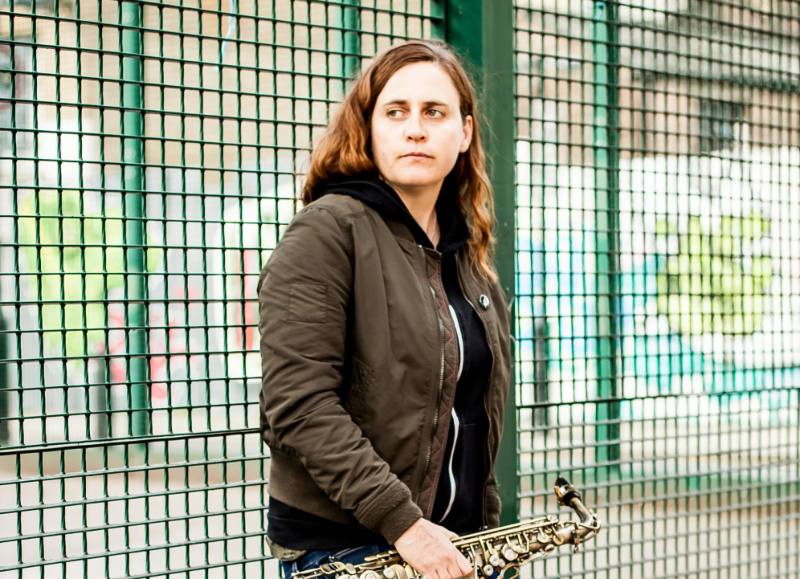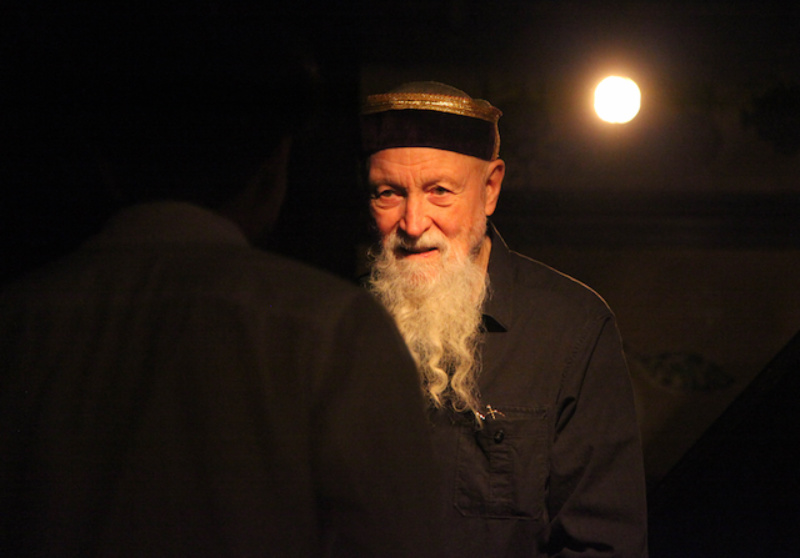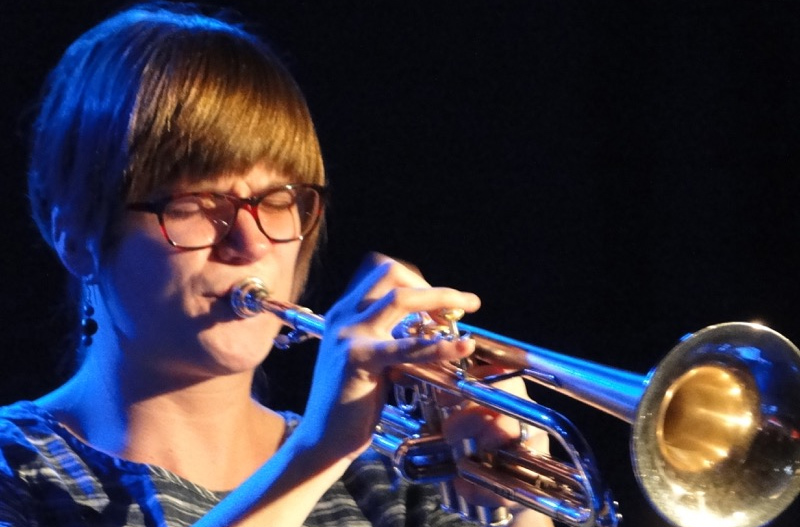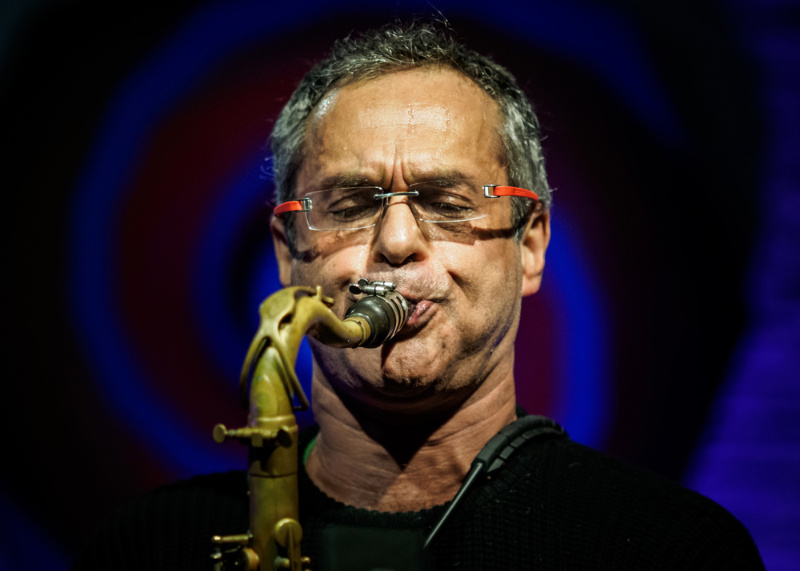Review: Brighton Alternative Jazz Fest
Simon Adams enjoyed an alternative seaside treat as the festival devoted to experimental jazz and free improvisation took over various Brighton venues
 The Brighton Alternative Jazz Festival focuses exclusively on the experimental and freely improvised end of jazz, the sort of music that has a big following in Brighton but is usually ignored by the jazz mainstream. The festival is directed by Daniel Spicer, a local music critic (but not of our parish), author, and no mean pianist and instrumentalist himself. Now making its third appearance, the festival takes place over five days in different venues around Brighton. The Brighton Alternative Jazz Festival focuses exclusively on the experimental and freely improvised end of jazz, the sort of music that has a big following in Brighton but is usually ignored by the jazz mainstream. The festival is directed by Daniel Spicer, a local music critic (but not of our parish), author, and no mean pianist and instrumentalist himself. Now making its third appearance, the festival takes place over five days in different venues around Brighton.
First up on Thursday 4 October in The Verdict, Brighton’s much-loved jazz club, was a triple bill of experimental jazz and improv. Spicer’s trio In Threads, with Spicer on wind instruments, violin, piano and "miscellaneous bits and pieces", Verity Spott on cello and James Parsons on drums, opened the event. As Spicer explained, the group like playing beginnings and endings but aren’t so concerned with what comes in between, which means that most of their spontaneous pieces are short and often abrupt. Yet they are also joyous and entertaining, Spicer’s demonstrative piano well matched by Spott’s gritty, urban cello.
Next up was Entropi, a five-piece led by alto saxophonist Dee Byrne (pictured above right by Carl Hyde). Their compositions juggle order and chaos, mixing structure and improvisation, all with strong grooves and arresting themes. Finally it was the turn of saxophonist Trevor Watts and pianist Veryan Weston in a duo they call the Quantum Illusion Project. In a way Watts has turned full circle in his career, moving away in recent years from the strongly rhythmic and melodic approach of his various Moiré Music and Celebration bands and returning to the rigorous improvisation of his earliest work. Weston augments his piano with raw electronics, but to my ears the result is arid and unlovely, intellectually coherent but without any feeling.
 Sunday 7 and Monday 8 October saw two performances in the Victorian grandeur of St Luke’s church by the Californian pianist Terry Riley (pictured left by Morgan Fisher), one of the founding fathers of American minimalism. Accompanied by his son, guitarist Gyan Riley, father Terry played an endearing mix of Indian ragas, a bluesy ragtime and, as an encore what appeared to be a close relative of the renowned In C. Riley is a playful presence, despite his 83 years, his joy at creating strong melodies and persistent minimalist grooves evident in every note. Suitably for a church, this was spiritual music of the widest kind. Riley was supported by Mésange, a duo of Agathe Max on amplified violin and Luke Mawdsley on electric bass. There was something almost ritualistic about their brooding, solemn pieces, with pools of electric sound rippling outwards in unhurried motion. For just two people, Mésange made a considerable impact. Sunday 7 and Monday 8 October saw two performances in the Victorian grandeur of St Luke’s church by the Californian pianist Terry Riley (pictured left by Morgan Fisher), one of the founding fathers of American minimalism. Accompanied by his son, guitarist Gyan Riley, father Terry played an endearing mix of Indian ragas, a bluesy ragtime and, as an encore what appeared to be a close relative of the renowned In C. Riley is a playful presence, despite his 83 years, his joy at creating strong melodies and persistent minimalist grooves evident in every note. Suitably for a church, this was spiritual music of the widest kind. Riley was supported by Mésange, a duo of Agathe Max on amplified violin and Luke Mawdsley on electric bass. There was something almost ritualistic about their brooding, solemn pieces, with pools of electric sound rippling outwards in unhurried motion. For just two people, Mésange made a considerable impact.
The main even of the festival was an afternoon and evening extravaganza in St Luke’s church on Saturday 13 October. Pianist Adam Fairhall opened proceedings with a solo tour of the history of jazz piano, playing a rumbling, bass-heavy stride, an old ragtime piece from Willie 'The Lion' Smith called Pork & Beans, a slow funereal blues, and, as a finale, Meade Lux Lewis’s gloriously exuberant boogie-woogie Honky-Tonk Train Blues, revived in the 1970s by that old prog rocker, Keith Emerson. While the original structures and rhythms remained in place, Fairhall used their time-honoured frameworks to build elaborate improvisations, their rhythmic flow and harmonic order disrupted and rearranged in kaleidoscopic fashion. As an opener, this was the perfect opening into the complexities ahead.
 Next up was a brand new, four-way collaboration for the festival between guitarist David Birchall and drummer Andrew Cheetham from Manchester, and Julie Kjaer on flute and Hannah Marshall on cello from London. Theirs was committed free-form improvisation, sonic abstractions giving way to flute-led drones and almost acoustic passages of quiet contemplation. For me, the logic of their music was much clearer than the superficially impressive set that followed. Next up was a brand new, four-way collaboration for the festival between guitarist David Birchall and drummer Andrew Cheetham from Manchester, and Julie Kjaer on flute and Hannah Marshall on cello from London. Theirs was committed free-form improvisation, sonic abstractions giving way to flute-led drones and almost acoustic passages of quiet contemplation. For me, the logic of their music was much clearer than the superficially impressive set that followed.
Laura Jurd (pictured right by Trish Keogh Hodgett) has been making a strong name for herself as a new, young trumpeter, and her four-piece band Dinosaur, dominated by Seb Rochford’s compulsive drumming, was certainly impressive. Yet to me their music was disordered, with too many ideas failing to cohere. Jurd delivered clean, warm lines often modified by some subtle synth interventions, while Ruth Goller kept the bass heavy and Elliot Galvin delighted us with his intelligent piano work. Rochford was as ever impressive, his deadpan features barely registering the rhythmic complexities he laid down. But the sum of the parts outweighed the whole, a problem that soon pass as this fine quartet finds its true voice.
 No such problems with the duo that followed. American pianist Matthew Shipp and Brazilian saxophonist Ivo Perelman (pictured left) have been collaborators for many years, with good reason, for Shipp’s almost classical poise is well answered by Perelman’s more emotional response. Shipp is a great pianist just to watch, his fingers darting in from a distance to fleetingly caress the keys before he lunges in to attack the keyboard with cross-handed aggression. There is a formality to his playing, a restraint and occasional raw romanticism that makes his contributions all the more effective, while Perelman is effusive while never overbearing. At almost an hour, their single improvisation never lost interest or direction. No such problems with the duo that followed. American pianist Matthew Shipp and Brazilian saxophonist Ivo Perelman (pictured left) have been collaborators for many years, with good reason, for Shipp’s almost classical poise is well answered by Perelman’s more emotional response. Shipp is a great pianist just to watch, his fingers darting in from a distance to fleetingly caress the keys before he lunges in to attack the keyboard with cross-handed aggression. There is a formality to his playing, a restraint and occasional raw romanticism that makes his contributions all the more effective, while Perelman is effusive while never overbearing. At almost an hour, their single improvisation never lost interest or direction.
For the first time in my life, I then got the chance to see German saxophonist Peter Brötzmann perform. Now 77, it is apparent that age has not diminished his fire, his power trio Full Blast – with a Swiss rhythm section of bassist Marino Pliakas and drummer Michael Wertmüller – delivering a high-energy set of incendiary power. What has changed is that the free improvisation of old has been replaced by a more modal approach, a riff-based melodic drive led by Brötzmann’s multiphonic banshee oboe or Hungarian tárogató and his ever-roaring tenor sax. The bass was a solid wall of sound, the drumming a consistent barrage of heavy drum rolls and eruptive percussion. It was an incantatory noise, a cathartic explosion that delighted the audience. After such an event, I had no ears left for the final group, the US liberation-orientated free jazz collective Irreversible Entanglements. I am sure they were excellent.
Tacked on to the end of the festival is an evening of free improvisation and singing from Ashley Paul, Gwenifer Raymond and GOITT at the Rose Hill pub and performance space on 20 October and then the Mercury Prize-shortlisted Sons of Kemet at the Komedia club on the seafront on 30 October. Both events take place after this review was submitted, but the Sons Of Kemet are bound to please, given the strength of their recent Impulse! album Your Queen Is A Reptile and their recent live shows. | |
